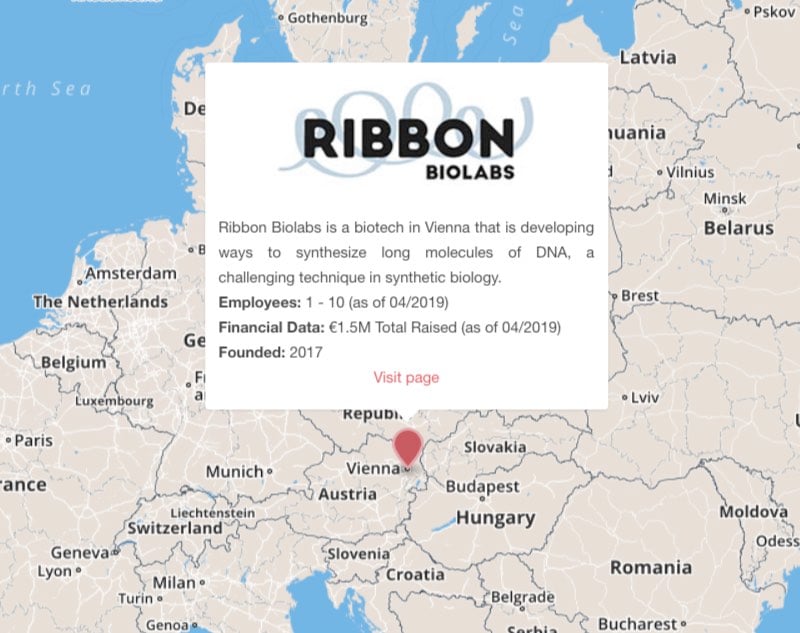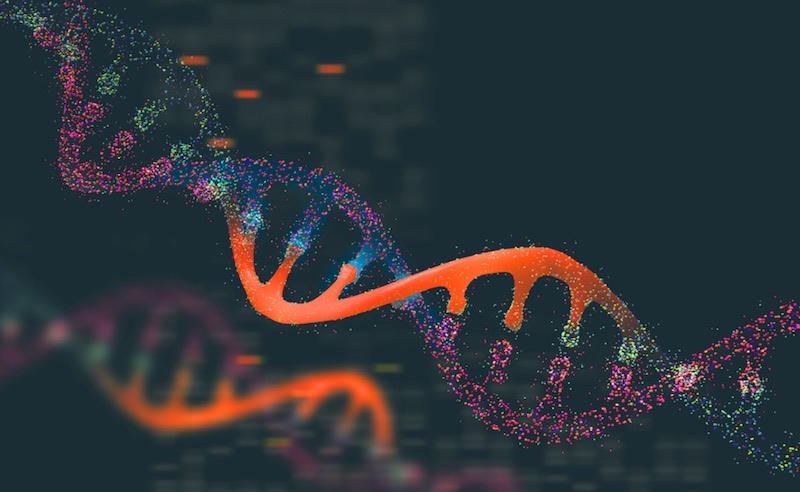Writing long stretches of DNA is difficult and expensive. The Austrian biotech Ribbon Biolabs is combining automation with enzymes to make the process easier, with the prospect of improving synthetic biology applications.
 Mission: To synthesize DNA molecules with a length of up to 10,000 base pairs (the building blocks of DNA). This target is five times longer than what current DNA writing technologies can achieve. This technology could revolutionize the field of synthetic biology by making it easier and quicker to design organisms for manufacturing molecules such as proteins and biofuels.
Mission: To synthesize DNA molecules with a length of up to 10,000 base pairs (the building blocks of DNA). This target is five times longer than what current DNA writing technologies can achieve. This technology could revolutionize the field of synthetic biology by making it easier and quicker to design organisms for manufacturing molecules such as proteins and biofuels.
Reading DNA code is cheaper than ever before, as genome sequencing technology has made leaps and bounds in costs and efficiency. However, writing, or synthesizing, DNA has not seen quite the same progress.
“Today’s methods for automated DNA synthesis limit the sequences to 2,000 base pairs at most, which is below the average size of a gene,” Harold de Vladar, CEO of Ribbon Biolabs, told me. Trying to synthesize longer molecules than this takes a lot longer, and costs a lot more.
Ribbon is developing a technology that writes genetic code using DNA-synthesizing enzymes, which could make the process faster than chemical synthesis, a method that’s been largely unchanged since the 1980s. Ribbon is also focused on automating the synthesis process to cut down the time and costs further.
Founded in Austria in 2017, Ribbon raised over €1.5M last year to fund the development of its technology. The company now aims to produce its first 10,000 base pair DNA molecules by the end of this year. After this, Ribbon is ambitiously planning to produce DNA of up to 100,000 base pairs in length by 2020.

What we think:
Companies are racing to develop technology to synthesize long DNA molecules. By making this process as cheap and quick as genome sequencing, companies that achieve this feat could revolutionize synthetic biology.
One example of the potential benefits of this technology include storing digital data in DNA. While traditional data storage technology lasts for around 20 years, DNA has the potential to last for thousands of years. Finding better ways of synthesizing DNA molecules could therefore make it easier to encode data in DNA.
Another potential benefit is constructing genes and genomes. At present, researchers have to synthesize smaller DNA molecules and stick them together to make gene-sized DNA molecules. If Ribbon’s technology could create a whole gene in one go, this could make it easier to engineer organisms for specific purposes, such as manufacturing medicines and biofuels.
Engineering organisms for better uses in synthetic biology is also the aim of many organizations. Other companies developing DNA synthesis technology include the French company DNA Script, and the UK biotech Evonetix.
Improved DNA synthesis isn’t the only method of making engineering organisms easier. Another way is to simplify down the complex genome of organisms, such as bacteria, to more manageable sizes. Scientists based in Switzerland recently were the first to use computers to simplify the genome of a species of bacteria, which could make organisms better suited for manufacturing molecules.
Images from Shutterstock





